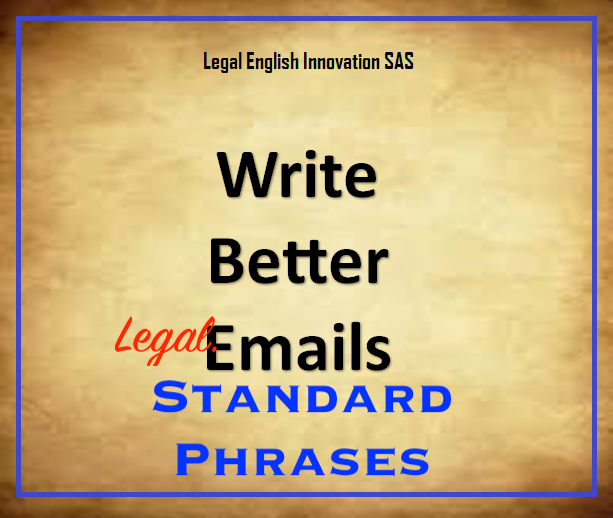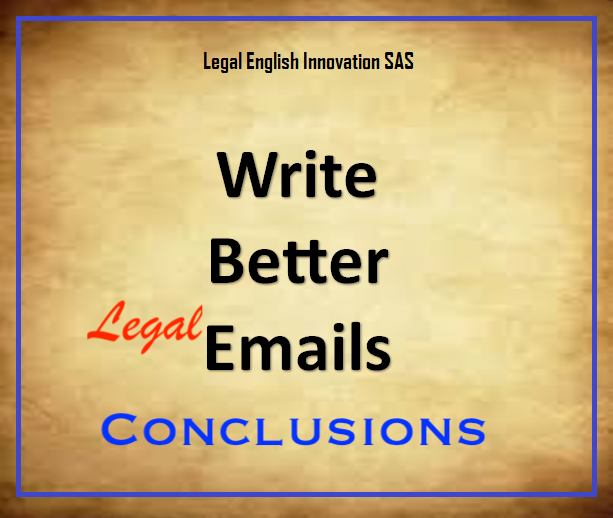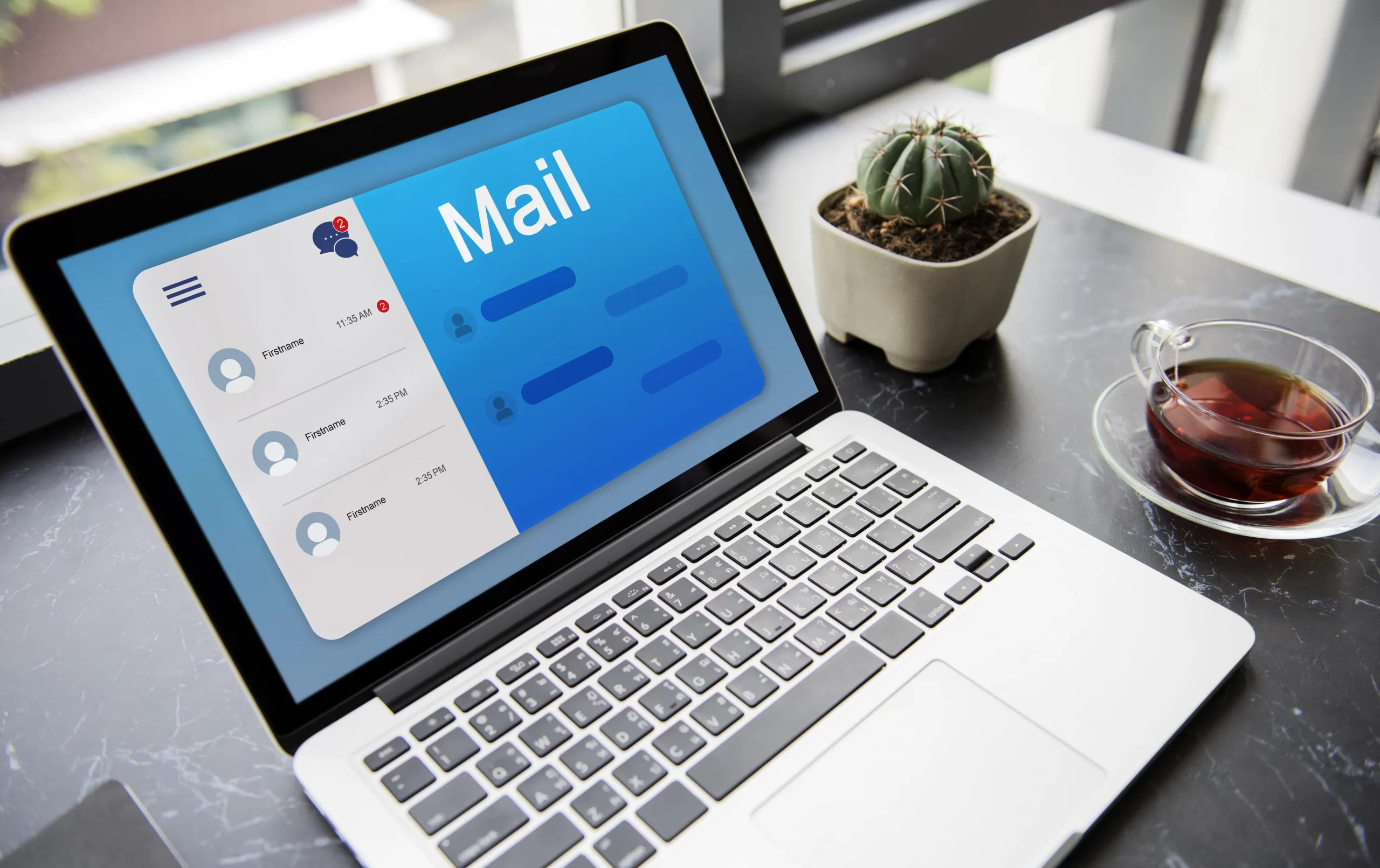Write Better (Legal) Email Bodies
Once you have set the register (either formal or informal), do not change it.
In order to sound “normal”, you need to keep a consistent register. If you decide to take the formal route, be sure that it is necessary and that the recipient will accept the communication well. On the other hand, if you choose to go with the informal register, be sure that you know the person well enough and that you have established the correct relationship.
Whichever register you choose, just keep it consistent. Below we will start with a quick review of some informal and formal phrases from the introductions.
How are your prepositions?
Each week we will take a quick quiz in order to do a pre-check on your skills. It just takes 3 minutes and will help identify your weaknesses and show you where to focus.
Remember, before you start writing…
… assume everything in the email will “end up in front of the judge“…
Pop Quiz Question
How many words should an effective subject line have?
Less than 3
Between 4-6
Between 7-10
More than 11
Between 7-10
The Introduction
Quick Review.
Informal or Formal, the register is up to you, just keep it consistent.
Informal Greeting
Hi John,
Hi there,
Hi everyone,
Informal Well Wishes
Hope all is good.
Hope you had a great weekend.
It is me again.
Informal Reason for Writing
I would like to let you know that…
I am happy to say that…
Just letting you know…
Informal Replies
Thanks for getting back to me.
Thanks for getting in touch.
Thanks for the quick response.
Informal Follow ups
Just following up on…
I am getting back to you on…
Just wanted to touch base on…
Formal Greeting
Hello Mr. Fazio,
Greetings,
Dear Mr. Fazio,
Formal Well Wishes
I hope you have been well.
I hope this letter finds you well.
I hope you are doing well.
Formal Reason for Writing
I am writing in regards to the…
With reference to our…
It is a pleasure to inform you that…
Formal Replies
Thank you for the update.
Thank you for the information.
Thank you for the prompt response.
Formal Follow ups
As per our conversation…
I would like to follow up on…
As we discussed on our call…
The Body
This is where you can express the spirit of your message, but of course not changing the register of the email. As an ESL student, this is a good opportunity to take some risks and write freely. However, keep in mind that it is important to use standard phrases, keep paragraphs to one main idea each and finally, write in plain language and cut down the legal jargon unless it is absolutely necessary.
Step 1. Develop a Topic Sentence
This is like writing a summary at the beginning of the paragraph. Inform the reader of the most important idea of the paragraph in a clear, concise topic sentence. Keep the language plain and direct.
Tip # 1
Keep it short.
15-20 words max.
Tip # 2
Keep this clear.
Keep the subject and the verb close.
Step 2. Support the topic sentence.
Now, the topic of the paragraph is out on the table, be sure to support your idea with at least two details that contribute content and back up your topic sentence.
Tip # 1
You should use at least 2 support sentences to help describe your topic sentence.
Tip # 2
Make sure that they are no longer than 30-35 words each.
Step 3. Using Bullet Points
If you are making a list use bullet points to organize for your reader.
Tip # 1
Questions are much easier to understand if they are written individually in bullet points.
Tip # 2
This is also true about steps or parts of a process. In paragraph form, they can be difficult to follow.
Step 4. Leading into the conclusion.
Set your reader up for the final part of your email and establish an appropriate CTA.
Tip # 1
What do you want to get out of the email?
Remember who you are writing to.
Tip # 2
Double check your register.
Will your call to action be appropriate?
Legal Writing Tip List
Go back and double check that the body of your email is in line with the following tips. Check out the full article here on Legal English Writing Tips
Tip # 1
Avoid Adverbs
Be careful about using adverbs. Adverbs exaggerate what you are trying to say and can backfire and make what you are trying to say seem is much weaker than what you are really trying to say. If you need to express this to your reader, then it shouts to the reader that you are overcompensating for something. Take adverbs out of your writing.
Tip # 2
Avoid Aggressive Language
This has no place in a professional environment. Passion is great, but control it. When you have a clear, cool head, the facts show much better. There is no reason to get angry over opposing counsel’s arguments or positions. Attack the argument’s validity and substance, not the language.
Tip # 3
Avoid Legal Jargon
Join the plain English movement. This was a law passed over 20 years ago in the UK, and nobody wants to hear this anymore. Modern day lawyers use this style, and it makes communication much easier and clear. Did you know that less than 2% of a document actually needs to be in legalese?
Tip # 4
Avoid Pronouns
One of the biggest confusions can be pronouns. If you are not a grammar pro, these are words like: I, you, we, they, he and she. When you are writing the document, it may seem clear to you, but remember that for the reader, everything may not be so clear. Take 1 minute, reorganize the sentence for clarity.
Do you have a full, professional fluency in Legal English? Take our quiz below.
See your level in just 5 minutes.
We can teach you legal English.
Did you know?
Fun Email Facts
The first email was sent in 1971.
The first email sent from space was in 1991 by the Atlantis crew.
About 62% of your inbox is spam.
Hotmail was the first public use system and released in 1996.
There are about 4 billion active email addresses in the world.
Employees spend about 1/3 of their day attending to emails.
About 269 billion emails are sent per day.
The average office worker sends about 40 emails per day.
The average office worker receives about 120 in their inbox.
The subject line length for highest read rate is 61-70 characters (or about 7-10 words).
What they say…
Quotes from some famous users…
“We need to protect the privacy rights of all Americans, and that means stopping the federal government from spying on the cellphones and emails of law-abiding citizens.”
-Ted Cruz
“If an NSA, FBI, CIA, DIA, etc analyst has access to query raw SIGINT databases, they can enter and get results for anything they want. Phone number, email, user id, cell phone handset id (IMEI), and so on – it’s all the same.”
-Edward Snowden
“Hillary Clinton was asked if she wiped the disc she was using for her email; she said, ‘Do you mean with a damp cloth?’ This, to me, is frightening.”
-John McAfee
“The major advances in speed of communication and ability to interact took place more than a century ago. The shift from sailing ships to telegraph was far more radical than that from telephone to email!”
-Noam Chomsky
“Airplanes are a good place to concentrate because you get no emails, no phone calls.”
-Abraham Lincoln
10 Tips to Keep in Mind
Write with the Right Register & Tone
Open with an Appropriate Greeting
Focus on the Overall Email Purpose
Organize Emails Appropriately
Use Proper Email Spacing
Use Appropriate Language – Minimal Legalese
Never Email in Anger
Send Error-Free Emails
Close Politely with a CTA
Problems with Powerpoint?
Learn to make beautiful PowerPoints in minutes.
About the Author
Eric Froiland
Eric is a legal English teacher from the United States and has been based out of Bogota, Colombia for the last 10 years. He is the owner and founder of Legal English Innovation SAS, which is recognized as the top legal English academy in Colombia and is an official Test of Legal English Skills (TOLES) examination center.



